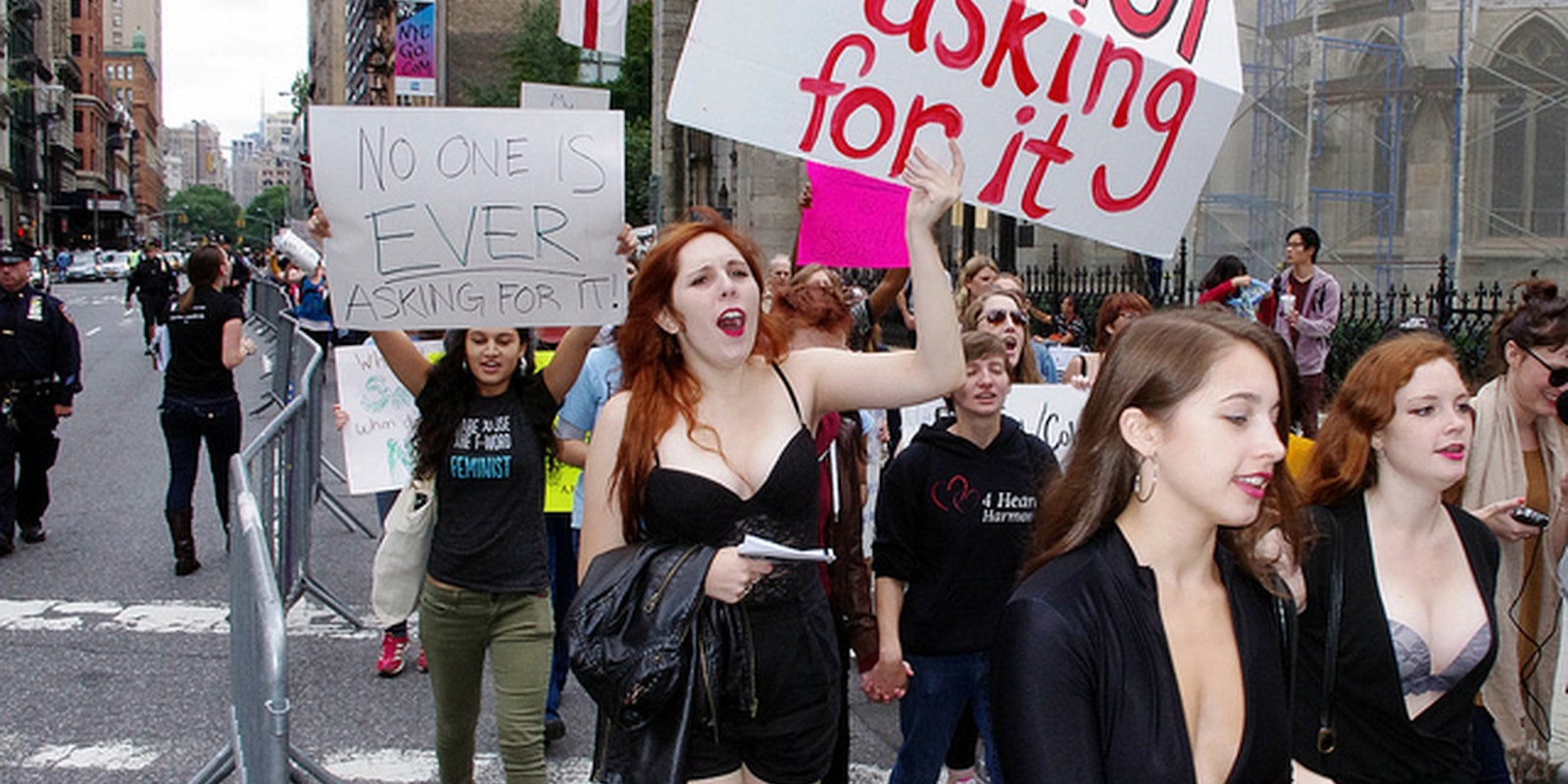If you don’t understand why Julian Norman’s Twitter campaign became so popular, try asking yourself this: when you’re walking on public thoroughfares, traveling between points A and B on your ordinary everyday business, do you regularly hear total strangers yell unprovoked commentary about your physical appearance, sexual desirability—or lack thereof?
If you answered “yes”—and you’re not a movie star stalked by paparazzi who sell your photos to celebrity gossip magazines—then chances are you’re either a woman, or anyone else who goes by the pronoun “she.” But if you said “Why, no, I don’t have strangers yell invitations at me whenever I go out in public” … you’re most likely a man.
Women don’t just face verbal harassment on the street; even unwanted touching is depressingly commonplace. These facts all inspired blogger Julian Norman (whose readers know her as London Feminist) to write on March 13:
“This is almost exclusively the preserve of women, the abuse that women get for being women. I think it has happened to all the women I know – the shouts from car windows, slapping your bottom as you cycle past, an ‘accidental’ grind on the tube, a grabbed breast …. If we do think about reporting it, we’re “overreacting,” the abuser was “just trying to be nice.” It’s a compliment; so what?
“One woman tweeted to say that depressingly, getting older and fatter meant she was more likely to get insults than leers – a sad reminder of how a woman’s worth is linked to male opinion of her fuckability, at the same time as some people feel it’s acceptable to pass comment on a stranger’s sex appeal.”
Women who bother complaining about such treatment often find themselves accused of lying, and all of these combined explain why Norman started the Twitter hashtag #Ididnotreport, urging people (mainly but not exclusively women) to mention crimes or mistreatment which, as the hashtag suggests, they experienced but did not report.
Two weeks later, on March 27, Norman wrote on the HLN blog to discuss her hashtag campaign’s progress. Despite the article’s uplifting headline — Ididnotreport: the tweet that empowered—it told a rather sobering tale. Norman said that when she started the Twitter campaign:
“I had imagined a few women joining in to share experiences of street harassment, but what I saw instead was an outpouring of accounts ranging from low-level harassment to vicious rapes, accounts from men, women, trans people, sex workers, young and old, around the world.”
The campaign quickly grew into something far bigger than Norman ever imagined, and she heard from the organizers of similar campaigns all over the world, including the French blog Pas de justice pas de paix (No justice, no peace).
The first step toward solving a problem is recognizing it exists. To that end, maybe Julian Norman took the first steps toward a world where media campaigns like hers will only exist in history books. As Norman herself noted:
“I am still astonished that a moment of spontaneous frustration on Twitter has morphed into a global consciousness raising exercise. It’s terribly sad that this sort of campaign is still needed, but the sheer volume of stories being shared shows that it is.”
Photo by david_shankbone
